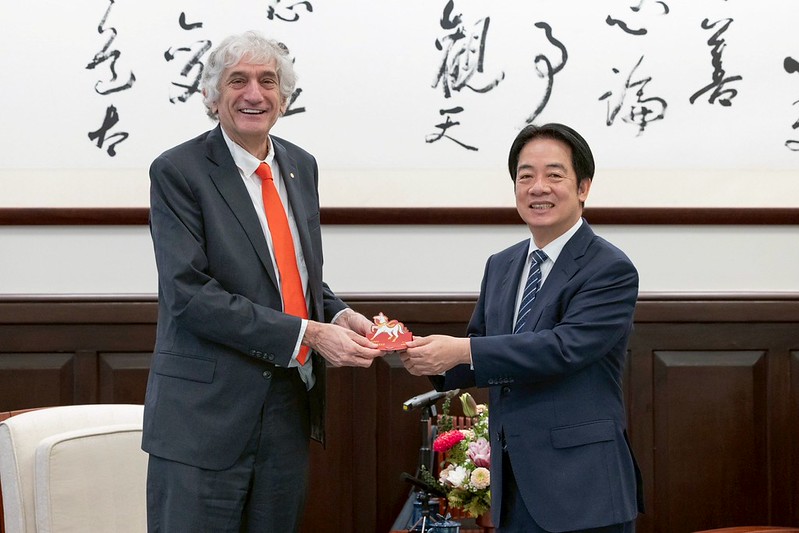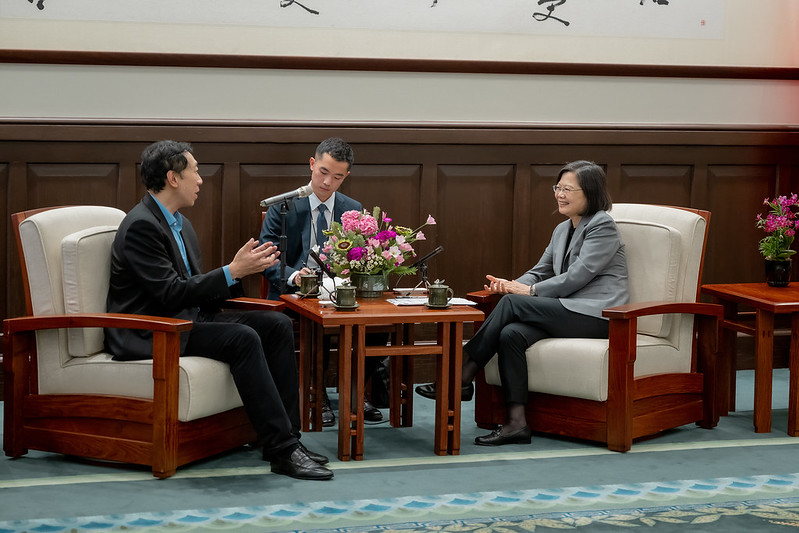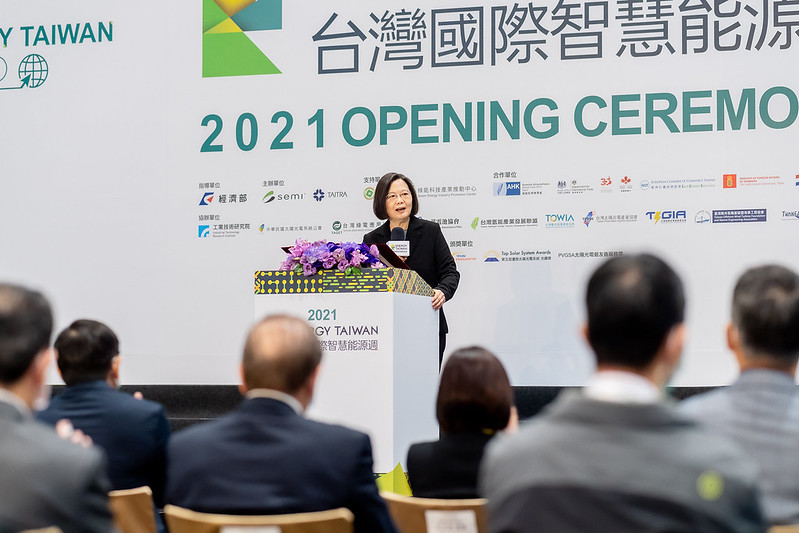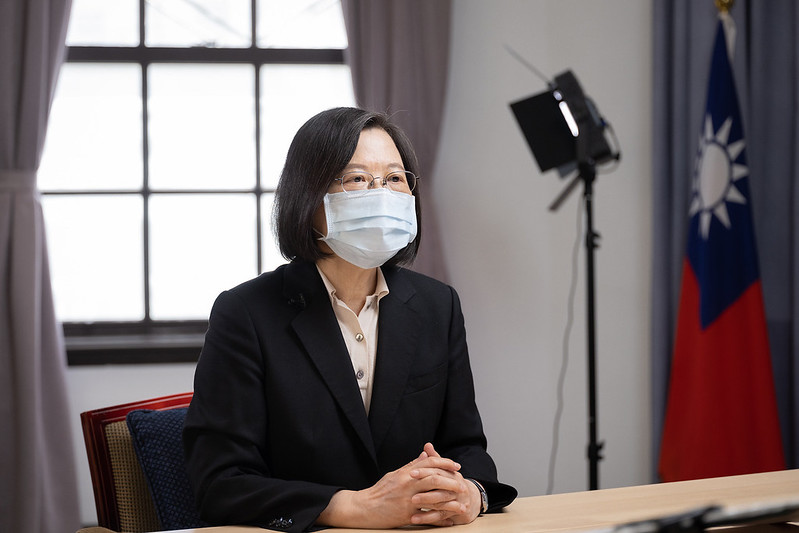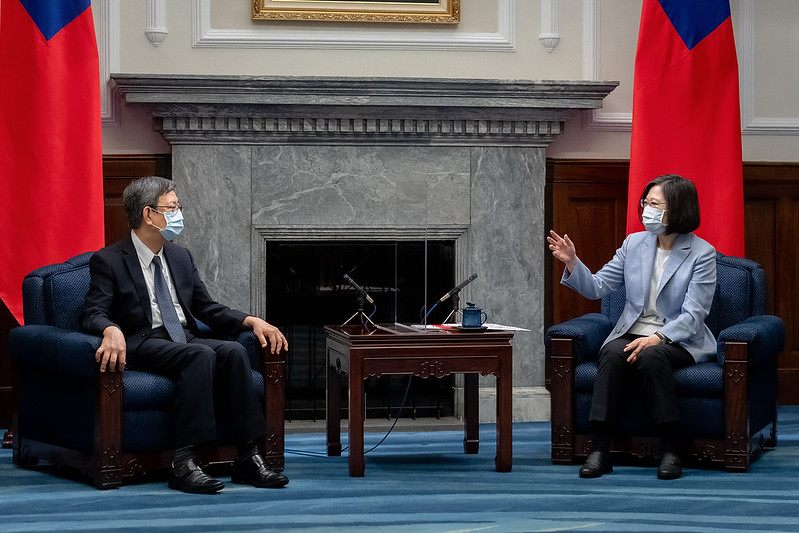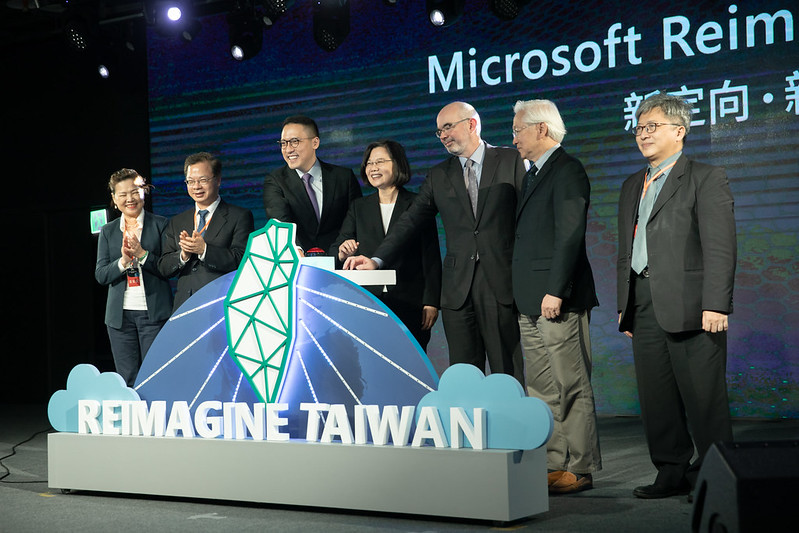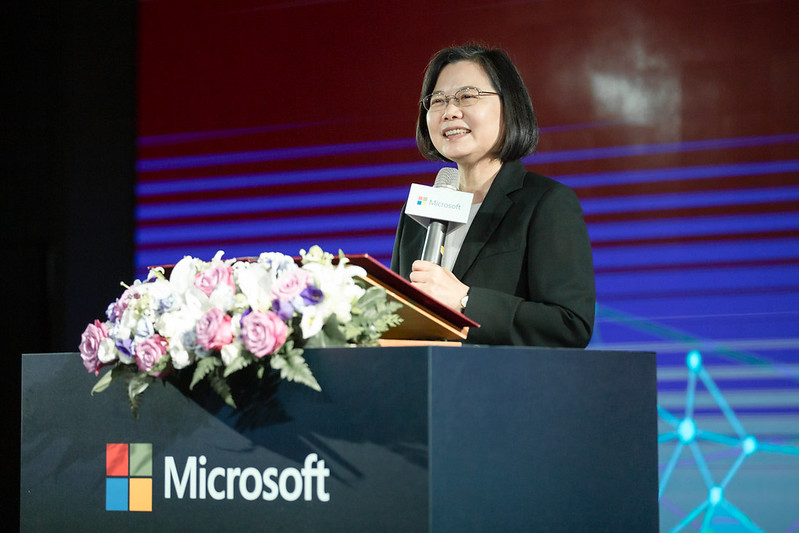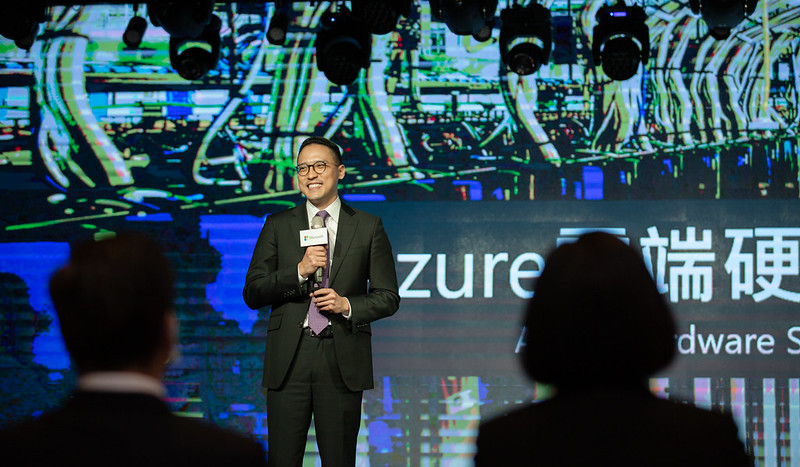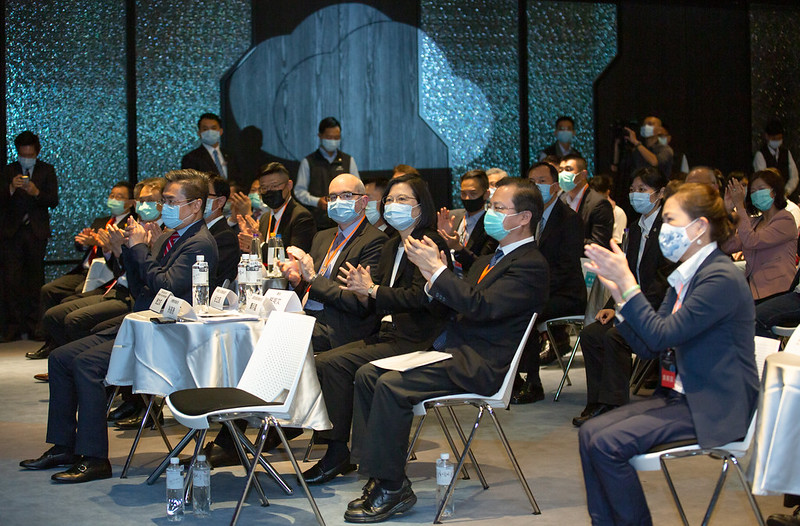News & activities
 News releases
News releases
President Tsai Ing-wen attended a press conference announcing investment from Microsoft in Taiwan on the afternoon of October 26. In remarks, she commended their increased investment, and said that Microsoft will be an excellent partner for Taiwan, allowing us to make an international impact together, which is a powerful and crucial aspect of expanding Taiwan-US collaboration. Microsoft's latest Taiwan investment plan will give the Taiwan-US partnership a jolt of added vitality across the board, and will certainly be to the benefit of both sides.
A translation of President Tsai's remarks follows:
I am delighted to join you here today to witness this momentous occasion as Microsoft increases its investment in Taiwan. First, I would like to thank Microsoft for its long-standing optimistic approach to Taiwan, and its willingness to invest resources and make long-term commitments to Taiwan as an important partner.
During my first term of office when we promoted our 5+2 innovative industries plan, Microsoft led the way in responding to our Asia Silicon Valley Development Plan by announcing the establishment of an IoT Innovation Center. Microsoft then continued to expand its investments in Taiwan. In 2018, the company set up Asia’s first artificial intelligence R&D center in Taiwan, and announced another major increase in investment this year.
The current pandemic has led to massive changes in the global economy, and sped up the reorganization of global supply chains. This critical moment is the best time to deepen Taiwan-US cooperation.
Taiwan holds a key advantage in high-end hardware manufacturing, and is a reliable and secure partner to the US, and other technologically-advanced countries, in information security and intellectual property rights protection. The US is the global leader in high-tech development. By combining Taiwan and the US’s respective strengths and enhancing our cooperation in supply chain realignment, those nations can make great leaps in technological advancement and an immense positive economic impact.
Microsoft’s increased investment in Taiwan is a powerful and crucial aspect of expanding Taiwan's global collaboration, especially with the US, as Microsoft is a global leader in so many different technological fields. I am certain that Microsoft will be an excellent partner for us, working with Taiwan to make an international impact.
Taiwan and the US are committed partners in developing global markets. Together we can create a global sales network, enter and establish ourselves in the Indo-Pacific region, build brand new supply chains, and develop vast new business opportunities.
This latest Taiwan investment plan Microsoft is announcing today will play a key role in strengthening Taiwan-US cooperation. What is more, it is an important milestone in our joint efforts to build a "digital Taiwan." Microsoft's plans for Taiwan include the establishment of its first regional cloud data center as well as the expansion of its cloud hardware team. These investments can effectively drive the development of Taiwan's cloud industry, boost innovative momentum in our industries, and ensure that the world is aware of Taiwan's formidable R&D capabilities.
On the industrial front, further enhancing 5G, AI, and AIoT industrial applications can spur digital transformation in medicine, the financial sector, and smart government. Beyond that, it can also drive robust development for enterprises throughout our economy.
And finally, I would like to thank Microsoft for its exciting plans over the next several years to cultivate 200,000 digital professionals in Taiwan, provide more than 30,000 job opportunities, and generate more than NT$300 billion worth of industrial output. I firmly believe that this latest Taiwan investment plan of Microsoft's will give Taiwan-US cooperation a jolt of added vitality across the board, and will certainly be to the benefit of both all involved.
President Tsai then joined the guests present in the launch ceremony. Among those on hand for the ceremony were American Institute in Taiwan Deputy Director Raymond Greene and Microsoft General Manager Ken Sun.
